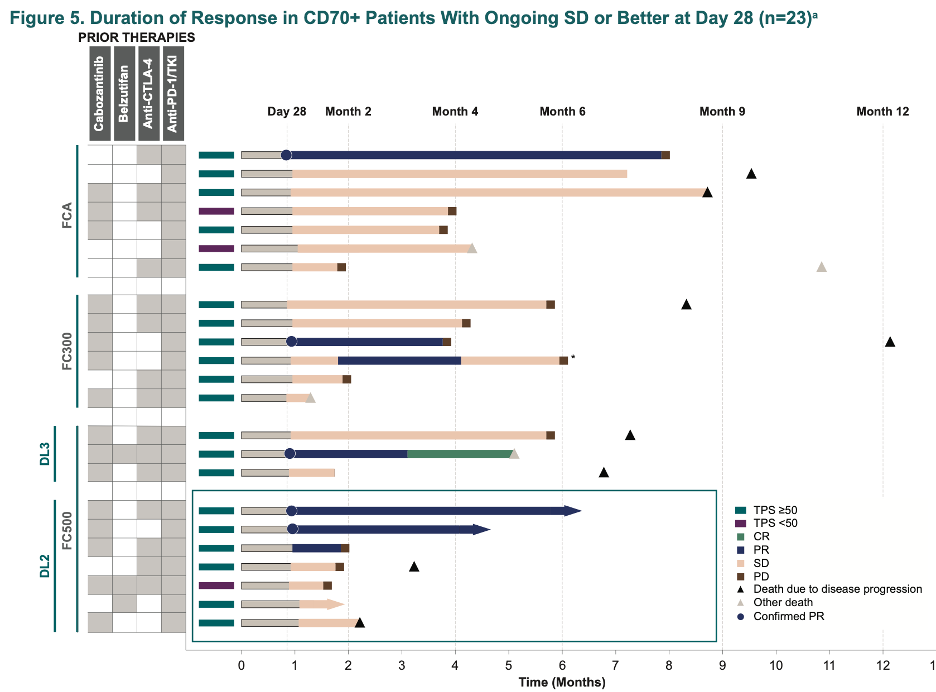SITC 2024 brought forward some fascinating data, highlighting both the strides we’re making in immuno-oncology and the hurdles that remain. This year’s presentations captured the steady march of progress as well as the complexities inherent in advancing cutting-edge therapies like CAR-T for solid tumors and checkpoint inhibitors like TIGIT. Two data sets stood out to me: Allogene’s work in CD70-positive metastatic RCC and A2 Biotherapeutics’ novel approach to NOT-gated CAR-T. Each point to meaningful innovation, but they also underscore the challenges of balancing efficacy, safety, and scalability in a maturing field. Let’s dive into the key takeaways and what they tell us about where the field is heading.
Thing 1: CAR/TCR-based T-cell therapies may carve out a space in solid tumors, but key questions remain
At SITC there was a lot of early-stage clinical data from T-cell based therapies using CAR/TCR based targeting modalities. Two companies, Allogene and A2 Biotherapeutics, presented data that helped further illustrate the product profiles of their respective cell therapy program, answering some key questions, while leave others open.
Allogene | ALLO-316 in CD70+ RCC
At SITC 2024, the Phase 1 TRAVERSE study of ALLO-316 in CD70-positive metastatic RCC presented an intriguing mix of promise and caution. This study targeted a highly selected population—RCC patients who had failed prior PD-1 and TKI therapies, all of whom had CD70 expression. Importantly, responses were observed only in patients with a TPS (Tumor Proportion Score) of 50 or higher, emphasizing a clear antigen expression threshold for efficacy.
The efficacy signal is notable: a 33% confirmed ORR (50% unconfirmed) in this heavily pretreated and antigen-selected population is a strong result for a single-targeting allogeneic CAR-T product. Achieving a CR, particularly in solid tumors where CAR-T therapies have historically struggled, underscores the potential of ALLO-316 and the Dagger® technology. Additionally, responders showed CAR+ cells persisting up to 120 days, highlighting Dagger's role in boosting cell persistence—a critical factor in driving durable responses.






